-

-
 Editor’s Note: This is part four of Paul Kwiatkowski’s cross-country assignment to investigate alternate perceptions of consciousness. Click here for part one [NSFW], two [NSFW], three [NSFW] and four.
Editor’s Note: This is part four of Paul Kwiatkowski’s cross-country assignment to investigate alternate perceptions of consciousness. Click here for part one [NSFW], two [NSFW], three [NSFW] and four. -
“The conscious experience of being a subject arises when a single organism learns to enslave itself.”
— Thomas Metzinger, The Ego Tunnel
-

-

Avoca, Wisconsin
-
Six years ago I met Rick during a brief stint in treatment for a little bit of everything. He introduced himself as “The Vulture” because he had so many bones to pick. Since then we loosely stayed in contact, meaning that most of what I knew about him was through his drunk Facebook updates.
Because Rick looked like a sun-damaged ex-teen idol, I caught myself thinking he was exceptional. In Milwaukee he was a pretty-boy hick, that special kind of simple that could easily elicit sympathy. Before even becoming a junior in high school he moved on to play out two aimless years being chewed up by Chicago, then opted out of working for his father’s produce export business by joining the army. After training he was stationed in Germany doing communications work during the Iraq invasion. There his naive American swagger occasionally passed for exotic. It made sense he was able to land European girls.
-
Two years in, Rick married a German named Regina. They met at a line-dancing night off base. Regina liked loud country music or pretended to; she absorbed anything Rick projected. He liked that her ass was small enough to fit in his hands; it made him think his cock was bigger. According to him the love was instant. After Rick completed his tour, they moved to his grandparents' farm in Avoca, Wisconsin.
As young newlyweds they made the best of living in a small town during a heat wave. They drank cheap beer in a kiddie pool, tossed scraps of BBQ over the fence and spaced out on a wind chime made from oxidized spoons. At the end of summer their fence was lined with bones. At night Rick shot at rats scavenging for scraps. Soon their bones piled up on top of the others in growing mounds. Rot flavored everything Regina hung out to dry.
-
By August Rick’s army severance was exhausted. The ache of autumn became indistinguishable from money worries. Another tour of duty meant time away from each other, and neither of them could handle that. Their nesting eroded their social skills.
As a last resort Rick drove trucks for his father’s company. On routes through South Florida he’d buy large quantities of prescription pills from pain-management clinics. Back in the Midwest he’d sell them in bulk to community college pushers.
Regina eased through the time alone with antidepressants. She claimed they gave her vertigo, but drinking killed the dizziness. After Rick had made enough money, they moved two hours away to Madison. Regina wanted to be around more people, though she had become self-conscious about speaking English. Her command of the language had been warped by Rick’s drawl.
-


-
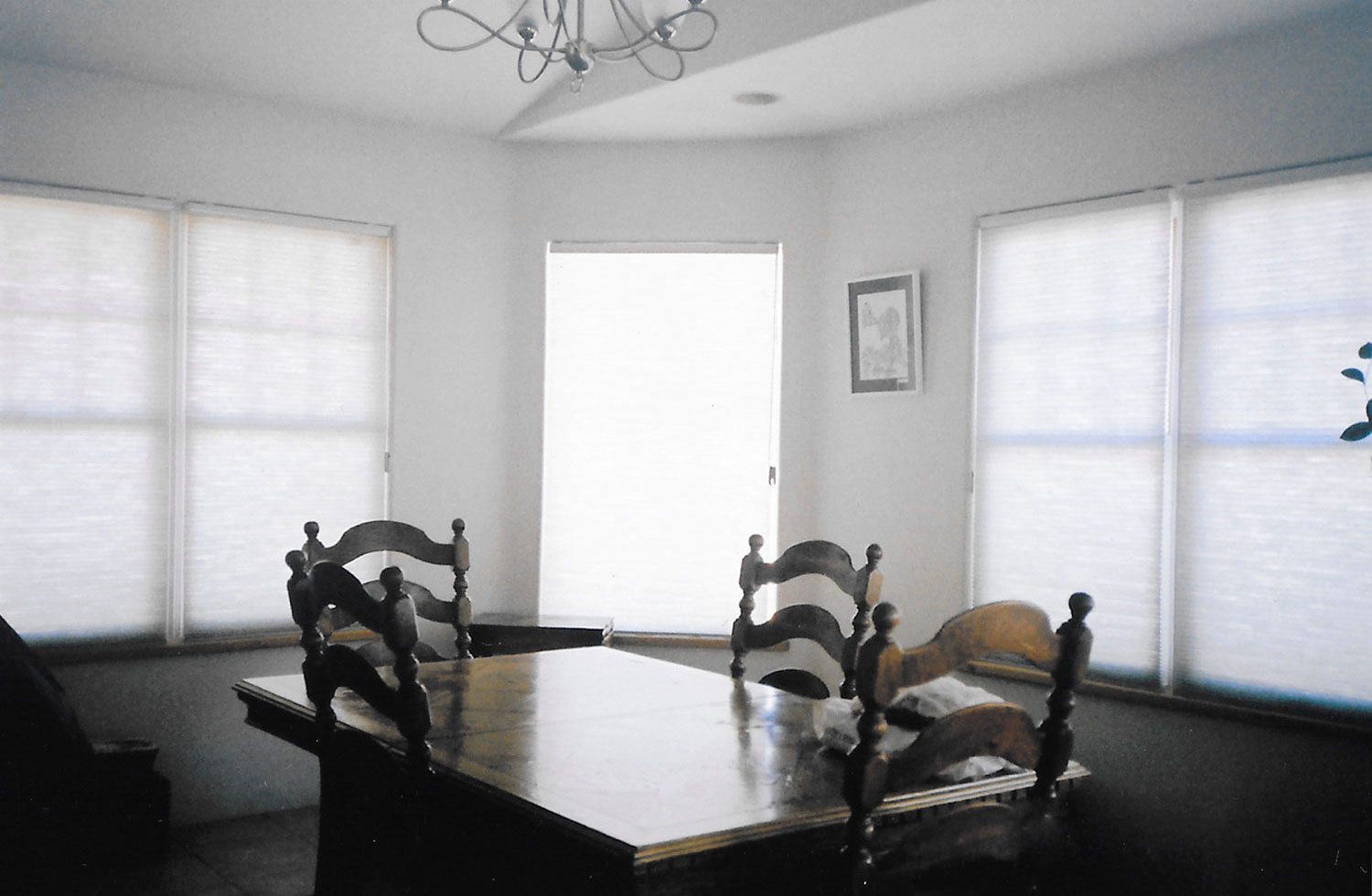
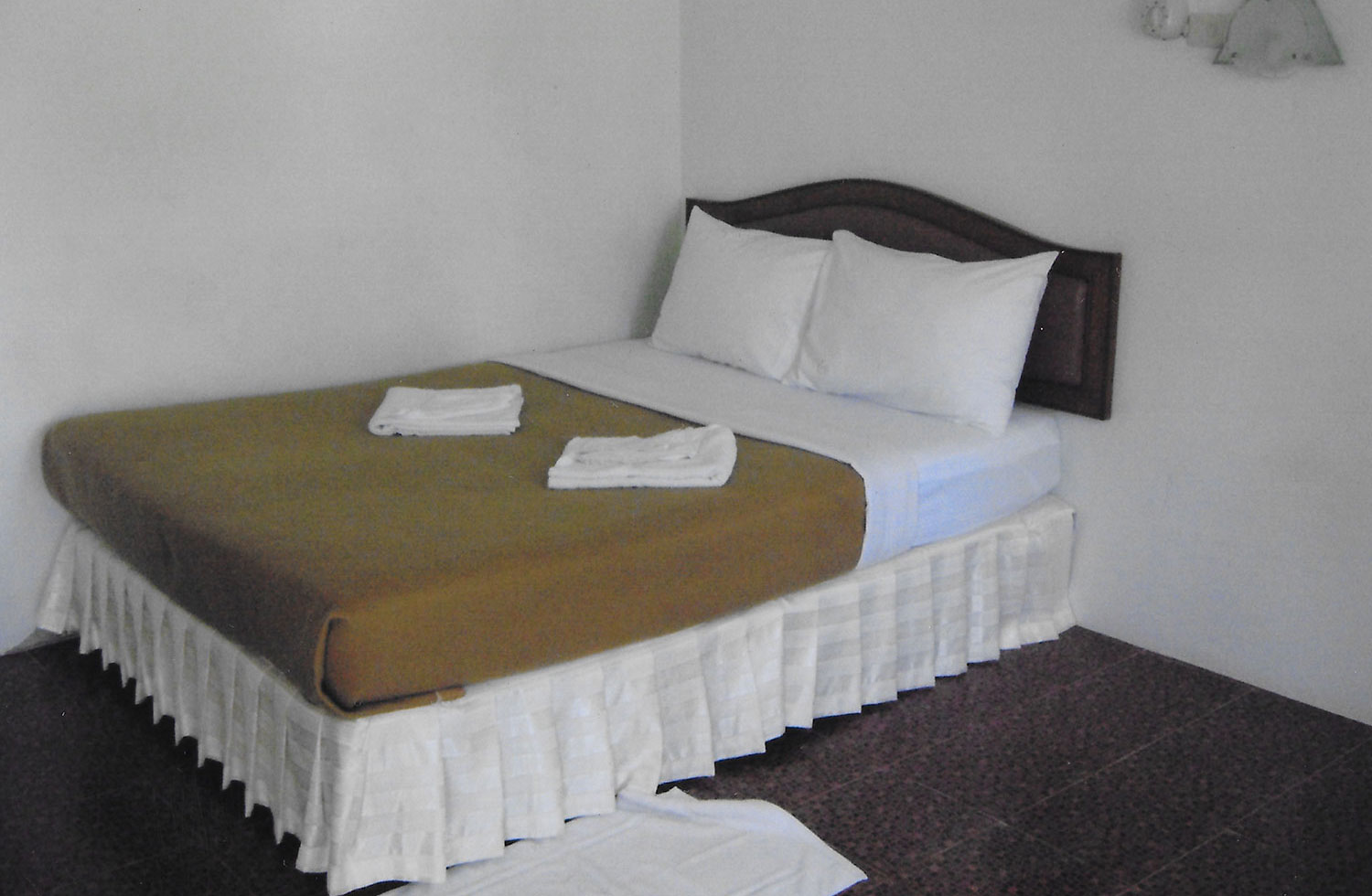
-

-

Madison, Wisconsin
-
Rick hadn’t returned from his latest run to Florida. It wasn’t unusual for him to fall out of sync, but this time was the longest he’d been away. Regina asked if I’d heard from him. I didn’t think it was my place to break it down for her, but Rick was probably never coming back.
Regina pulled her hair out of a tight ponytail, releasing a stale whiff of antiseptic aerosol. Red creases sleeved her wrist. I could tell she’d been hospitalized.
-
The inside of her house reminded me of a childhood memory I couldn’t place. It flooded my imagination with made-up memories of visiting a grandparent’s country home during the summer — somebody else’s flashback, most likely a scene I remembered from a movie.
Lining the living room walls were drawings of severed ponytails. When I asked Regina about them she handed me a tackle box crammed full of ponytails in Ziplock bags.
-
I pried for details. Regina spoke softly. Everything she said had the cadence of a being let in on a secret. She told me that most luxury wigs are made from the hair of grieving widows in India. They shave their heads for purification and as a declaration of mourning in a process called “tonsure.” The severance is symbolic of their devotion. Their hair is sold to wig makers in the Unites States and Russia, who bleach and color it to be woven into extensions.
-
Tonsure inspired Regina to start a hair-harvesting studio in Madison. On bulletin boards outside AA and NA meetings she posted advertisements that offered free haircuts to women interested in new beginnings. After cutting the hair, Regina photographed the severed ponytails and drew them.
The ponytails were as important to Regina as they were to the women who shed them. Each bundle of hair was a demarcation of finality, a blip in the continuity that kept them waking up to nothing. The process of cutting, archiving and illustrating snapped Regina out of the illusory, back into the person she was before Rick.
-
“Do you consider it charity?” I asked.
“We’re all somebody’s charity,” she said.
-

-

-

-

-

-

-
Spending time with Regina was a bit like a stoned night alone searching YouTube. Leaving Wisconsin I was uneasy about re-entering a normal day-to-day grind with the rest of the world. I needed more time away.
I ignored the upcoming storm warnings and preoccupied myself with the 12-hour drive from Madison to Lily Dale in Upstate New York. It’s the cornerstone of the Spiritualist movement in the United States, and it’s known for its community of mediums who can communicate with the dead.
-
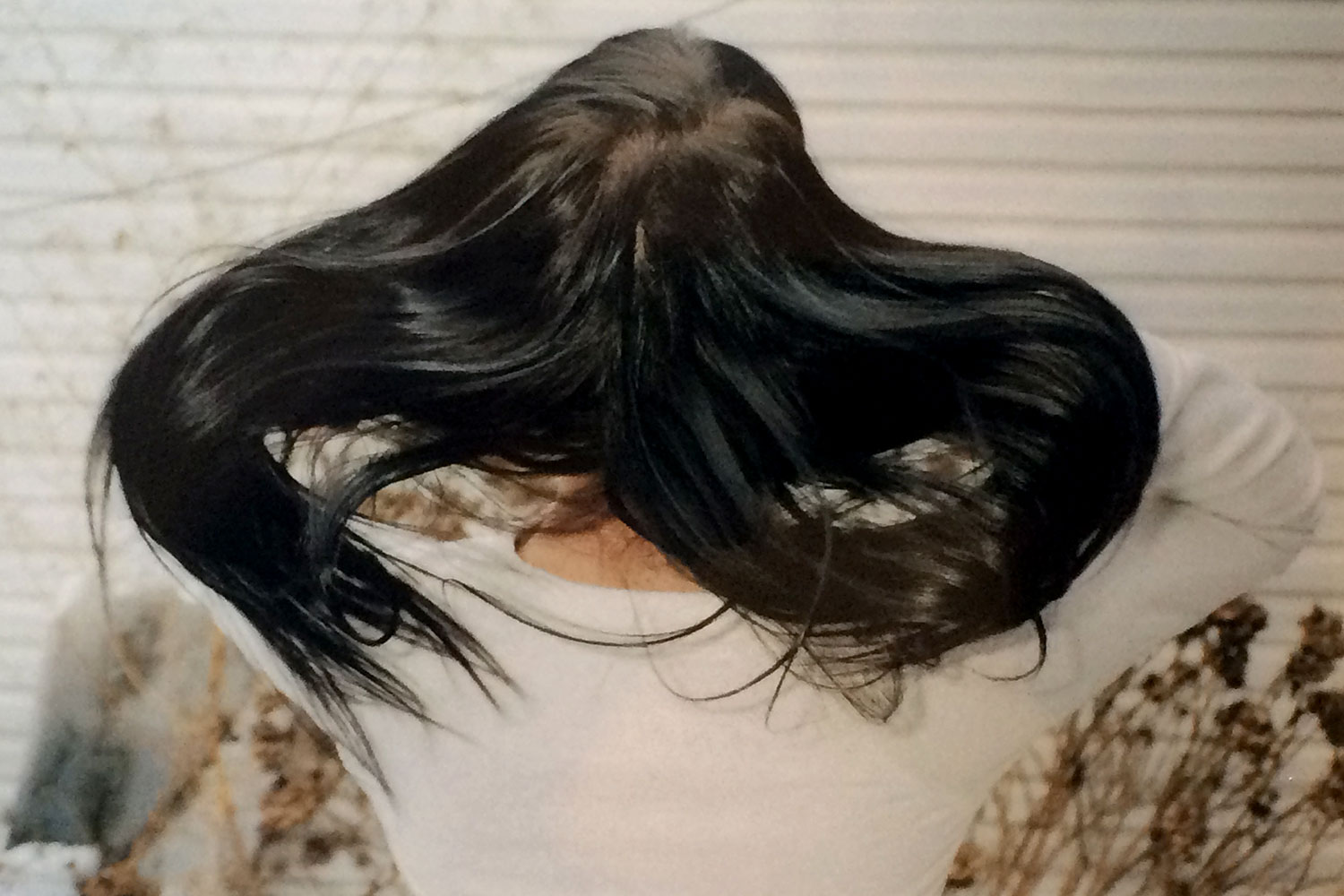
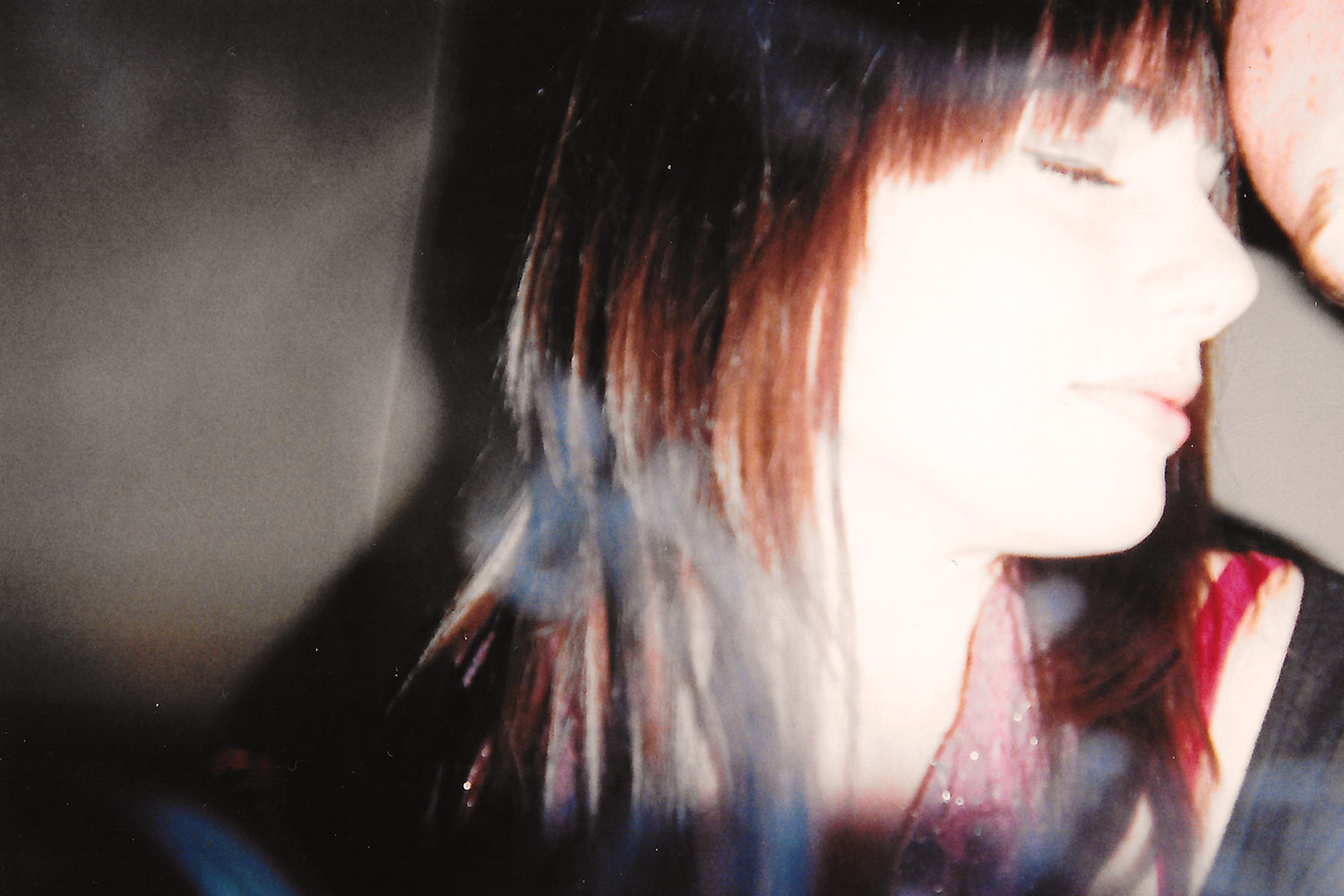
-

-

PART VI:
Eat Prey Drug: Witness -
Share on FacebookShare on Twitter
Read More In This Series
Or Buy Paul Kwiatkowski's Book
And Every Day Was Overcast
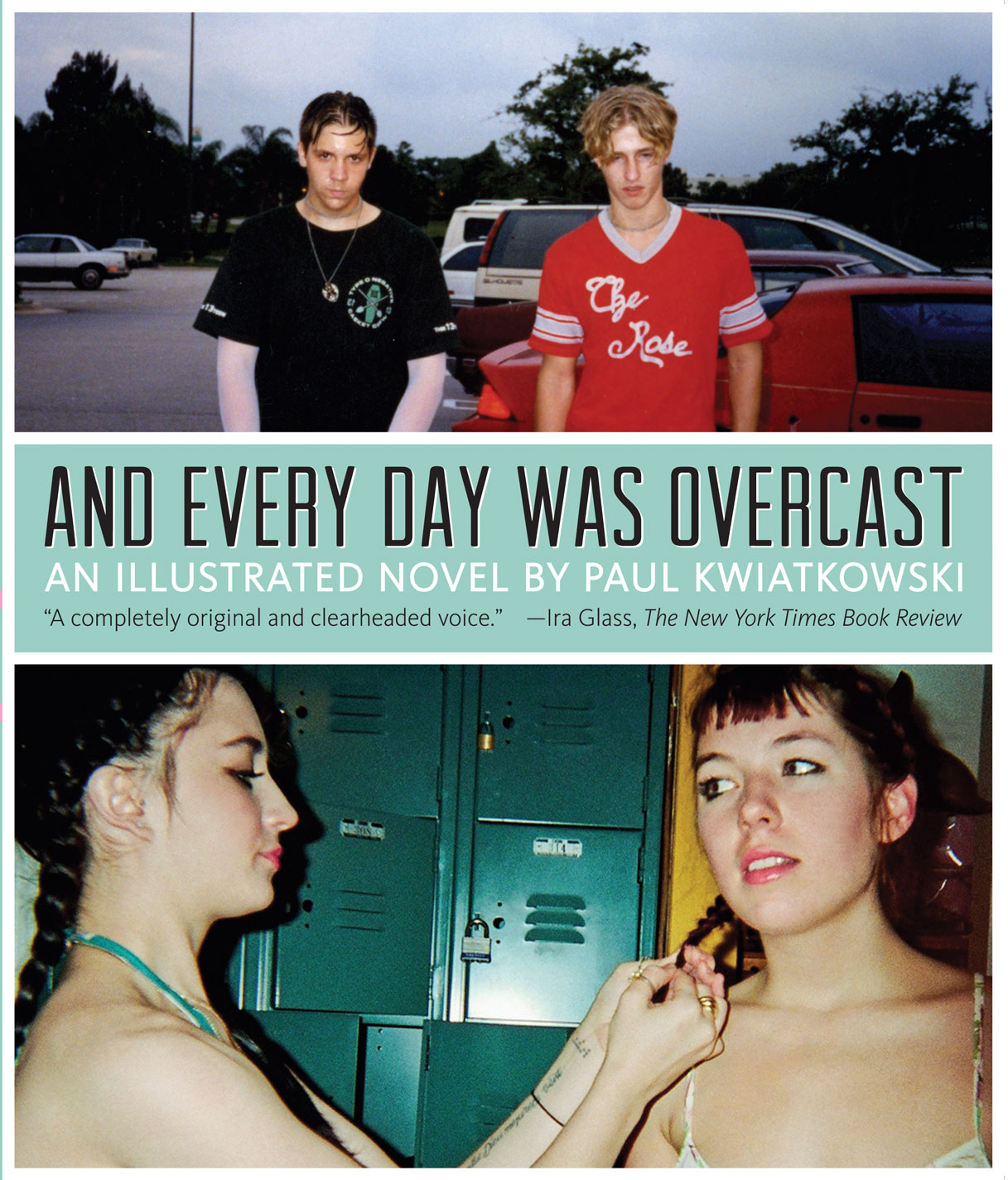
Out of South Florida’s lush and decaying suburban landscape blooms the delinquent magic and chaotic adolescence of And Every Day Was Overcast. Paul Kwiatkowski’s arresting photographs amplify a novel of profound vision and vulnerability.
$29.95
-
Eat Prey Drug: Sweet Charity
Text and Photographs by Paul Kwiatkowski with Allison Woodruff









